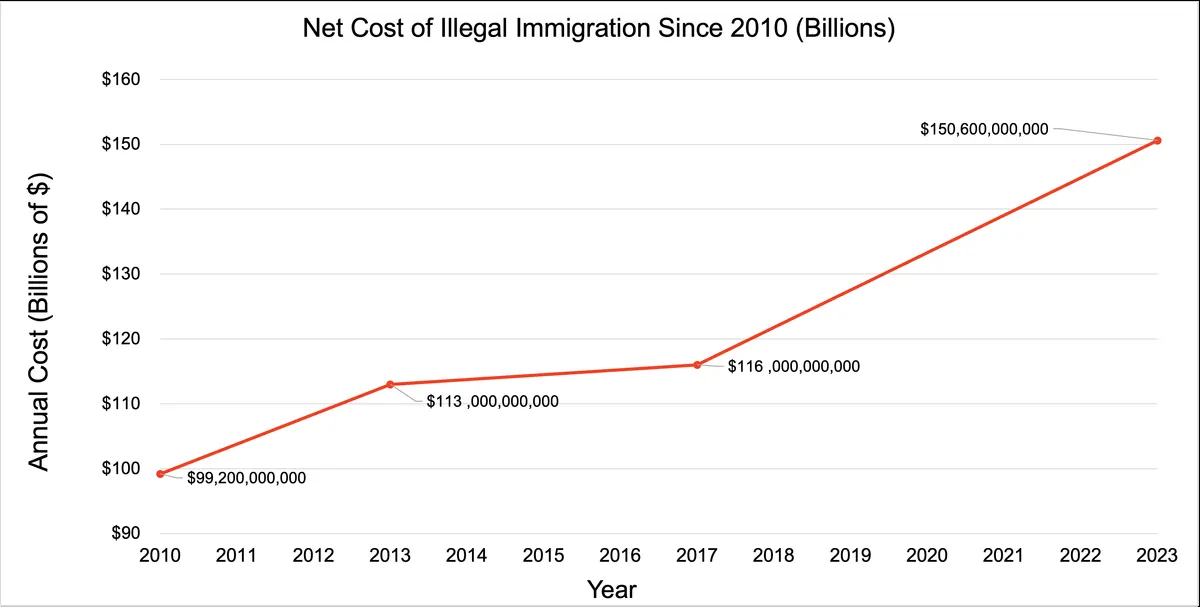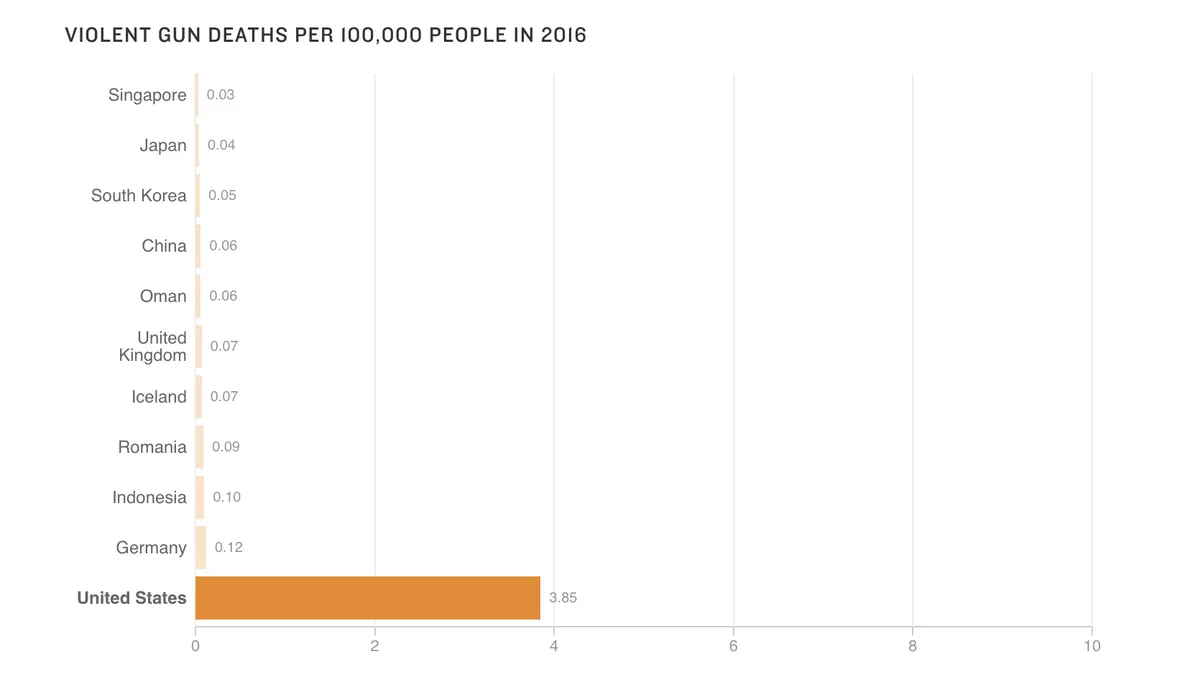Debunking the Myth: Undocumented Immigrants and U.S. Homicide Rates
Research refutes claims of 4,000 annual deaths caused by undocumented immigrants in the U.S. Studies show lower crime rates among this population compared to native-born citizens.

Recent social media posts have circulated an unsubstantiated claim that undocumented immigrants are responsible for 4,000 deaths annually in the United States. This assertion, however, lacks credible evidence and contradicts existing research on immigrant criminality.
The circulating graphic compares alleged deaths caused by undocumented immigrants to those caused by rifles. While FBI data shows that rifle-related homicides have indeed been below 500 annually in recent years, the claim about immigrant-related deaths is unsupported.
According to the FBI's Uniform Crime Reporting program, which has been collecting crime data since 1930, rifle-related murders numbered 556 in 2022 and 511 in 2023. The total firearm-related homicides in 2023 reached 13,529. It's worth noting that the FBI began systematically tracking crime statistics nearly a century ago, long before the current immigration debate.

The assertion of 4,000 deaths caused by undocumented immigrants annually is not only unsubstantiated but also contradicts available research. Michelle Mittelstadt, communications director of the Migration Policy Institute, confirms that no national statistics exist on crimes committed specifically by unauthorized immigrants. This lack of comprehensive data highlights the challenges in making broad claims about immigrant criminality.
Despite the absence of nationwide data, studies consistently show that undocumented immigrants commit crimes at lower rates than native-born Americans. This finding aligns with historical patterns observed since the U.S. Census Bureau began collecting data on the foreign-born population in 1850.
Texas, the lone state tracking immigration status in arrest records, provides valuable insights. A June 2024 analysis by the Cato Institute's Alex Nowrasteh examined Texas data from 2013 to 2022. The study found that the homicide conviction rate for undocumented immigrants was 2.2 per 100,000, compared to 3.0 per 100,000 for native-born Americans. This trend persisted in 2022, with undocumented immigrants comprising 7.1% of the Texas population but accounting for only 5% of homicide convictions.
"I've seen zero evidence for illegal immigrants killing 4,000 people a year. I've never seen that number defended by anybody spreading it."
A 2020 study published in the Proceedings of the National Academy of Sciences, using Texas data from 2012 to 2018, corroborated these findings. Michael Light, a sociology professor at the University of Wisconsin-Madison, and his colleagues found that undocumented immigrants were less than half as likely to be arrested for homicide compared to U.S.-born citizens.
The implausibility of the 4,000 deaths claim becomes evident when considering current population estimates. Using the Pew Research Center's 2022 estimate of 11 million unauthorized immigrants in the U.S., the alleged death toll would translate to a homicide rate of 36.4 per 100,000 among this population. This rate would be more than six times higher than the overall U.S. homicide rate of 5.7 per 100,000 in 2023, as reported by the FBI.
It's crucial to approach such claims critically, considering the complex history of U.S. immigration policy. Since the establishment of the U.S. Border Patrol in 1924 and the evolution of immigration laws, including the landmark Immigration and Nationality Act of 1965, the nation has grappled with balancing border security and immigrant rights.
In conclusion, the claim that undocumented immigrants are responsible for 4,000 deaths annually in the U.S. is unfounded. Research consistently shows lower crime rates among this population compared to native-born citizens, underscoring the importance of fact-based discussions on immigration and public safety.


































